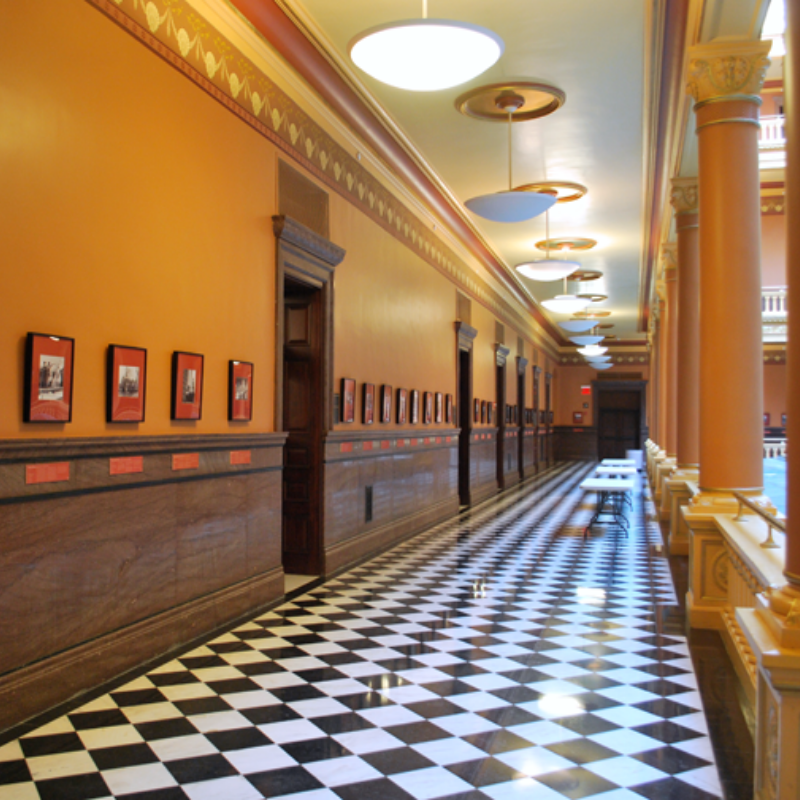It's Better in Europe: My Plenary Talk at the Reward Equator Conference
It's Better in Europe: My Plenary Talk at the Reward Equator Conference
In this post: I cover my plenary talk at the Reward Equator Conference in Berlin. I also include an amazing collection of engaged scholars I've found who are dedicated to supporting Ph.D. researchers.
Next week: I talk about the revelatory impact of Bell hooks' Teaching to Transgress and how it taught me how to be a fully engaged educator.
Last week: I talk about what I've learned about how to exist as an educator and how to extend that beyond the context of academia.
Way back in February, in an entirely different world, I was invited as a plenary speaker at the Reward Equator Conference 2020 in Berlin by Professor Malcolm Macleod of University of Edinburgh, who is the Academic Lead for Research Integrity. There, I found engaged scholars, many of whom were already involved in the important work of transforming the research landscape. Those of us toiling in the dark in the U.S. stand much to learn.
Here is a transcript and embedded above is a video of my talk.
After my initial amusement that a conference directed towards Neuroscience and research accountability would be interested in hearing from me, an opinionated Art Historian turned expelled academic who still doesn’t really understand how pipettes work, let alone scientific research, I paused.
The invitation came shortly after a chain of talks at U.S. universities and departments where the hypocrisy of not only departments, but also individual professors within them, were on full display. I felt done with the work I began here on Post-Ph.D. I didn’t think I could sit through another awkward lunch with exhausted and harassed graduate students, listening to them speak cautiously about their experiences in front of their mentors, P.I.’s. It was cringe worthy, especially after being dismissed by those same professors during my talk.
Why did I need to keep speaking to these people? Doing so felt like talking to an ignorant Trump supporter about the importance of wearing masks. In earlier posts, I spoke of academics as ostriches with their head in the sand: unwilling to see, perhaps so as to preserve their own sense of self, so unambiguously tied to a false-belief in meritocracy. I still think that, for most of them at least. To be perfectly honest, I accepted the invitation from Professor Malcolm Macleod for selfish reasons: I wanted to go to Berlin.
However, what I found at that conference was something that reinstated my hope, at least in Europe and the UK, for an alternative path. I was humbled by the standing ovation I received there, as well as the fruitful dialogues I had. For those of you interested in incentivizing a different approach to research and ethics, where early career researchers are prioritized and their superiors financially rebuked for misbehavior, I encourage you to look into the Wellcome Trust and the amazing efforts of Anne Marie Coriat, head of Research Landscape at Wellcome, who spoke at the conference on “Implementing Strategies to Promote a More Positive Research Culture in PhD Training.” While this talk deserves far more than a brief mention, suffice it to say, as I sat listening to her speak of mentor exploitation, toxic working cultures, and how Wellcome Trust worked to incentivize ethical supervision of early-career researchers, I stood slack-jawed in the audience that such a thing even existed.
Of course, within a month Covid-19 would halt the world, and send my students into an even deeper crisis. My teenage students deserved all of my time, energy, and activism, so much so that the problems of higher education seemed to be trivial bourgeoisie complaints in comparison.
But now that Black Lives Matter protests have become routine for my friends and me, and I have the beauty of summer to exclusively focus on writing, now it’s time.
For those of you reading this that I met at the Reward Equator conference, get in touch! You all have so much taught those of us in the U.S.
-Allison Harbin












In this post: The real story of what happened after I left academia, on the loss of my academic career and feeling adrift.